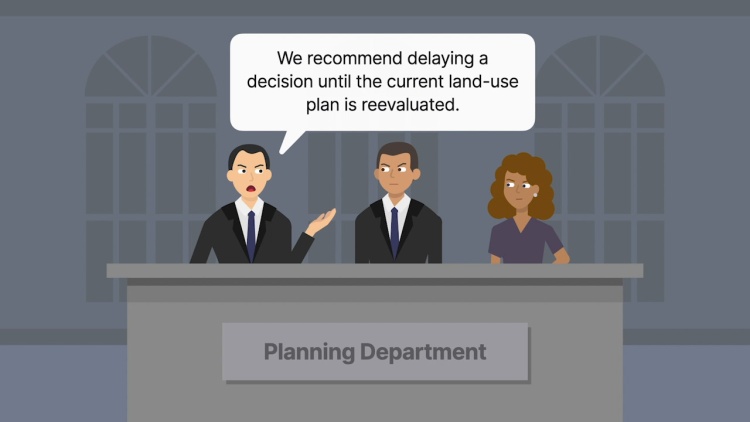State v. City of Rochester
Minnesota Supreme Court
268 N.W.2d 885 (1978)
- Written by Rose VanHofwegen, JD
Facts
Rodney Younge (defendant) contracted to purchase a 1.18-acre parcel to construct an apartment building near downtown Rochester, contingent on rezoning the property from single-family and low-density residential to high-density residential. Two high-density apartment buildings bordered the parcel, with single-family and low-density multifamily homes on the other two sides. The planning department recommended tabling the rezoning to study whether to amend the land-use plan, and the planning commission recommended denying the rezoning as inconsistent with the plan. After a hearing and protest proceedings, the council nonetheless approved the rezoning, without written reasons or findings of fact in support. However, the meeting minutes showed the council found the site ideal for an apartment building to serve growing housing requirements near downtown and unlikely to be developed otherwise because of the neighboring apartment buildings. The council then amended its land-use plan accordingly. The Rochester Association of Neighborhoods (the association) (plaintiff) and neighboring homeowners (opponents) opposed the rezoning as (1) a presumptively invalid quasi-judicial act; (2) if a legislative act, arbitrary and capricious because incongruous with the land-use plan and not reasonably related to public welfare; and (3) invalid spot zoning. The trial court upheld the rezoning, and the association appealed.
Rule of Law
Issue
Holding and Reasoning (Rogosheske, J.)
Dissent (Kelly, J.)
What to do next…
Here's why 907,000 law students have relied on our case briefs:
- Written by law professors and practitioners, not other law students. 47,100 briefs, keyed to 996 casebooks. Top-notch customer support.
- The right amount of information, includes the facts, issues, rule of law, holding and reasoning, and any concurrences and dissents.
- Access in your classes, works on your mobile and tablet. Massive library of related video lessons and high quality multiple-choice questions.
- Easy to use, uniform format for every case brief. Written in plain English, not in legalese. Our briefs summarize and simplify; they don’t just repeat the court’s language.





